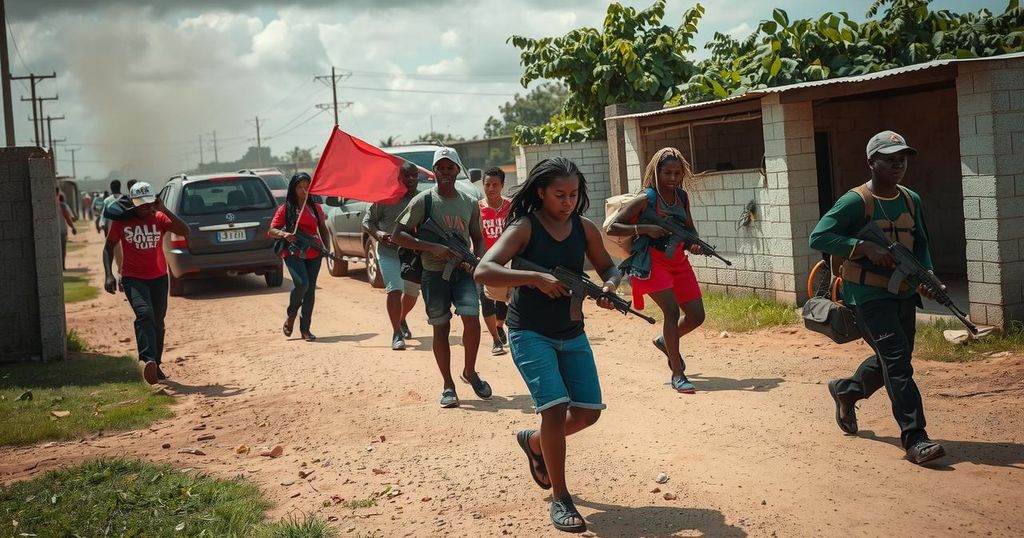Mozambique’s Unrest: Mass Prison Escape Amidst Election Protests

In Mozambique, over 1,500 prisoners escaped during protests against disputed election results, leading to at least 21 deaths. The unrest was incited by a court ruling confirming the ruling Frelimo party’s victory while revising the vote margin. With significant public dissent, many businesses closed as citizens braced for continued violence and instability arising from the political turmoil.
In Mozambique, over 1,500 prisoners escaped a Maputo prison amidst growing unrest following disputed presidential election results. The police chief, Bernardino Rafael, reported that 33 individuals lost their lives and 15 sustained injuries during confrontations with prison guards. Although approximately 150 escapees have been recaptured, the upheaval stems from protests ignited by the constitutional court’s affirmation of the ruling Frelimo party’s victory, which has been contested by opposition leader Venâncio Mondlane. Businesses have largely closed in the capital as citizens remain cautious in the face of severe unrest which has claimed at least 21 more lives since Monday, highlighting escalating tensions from the electoral outcome.
The political landscape in Mozambique has been tumultuous following presidential elections in October, where the ruling Frelimo party’s candidate, Daniel Chapo, was declared the victor. The controversial results sparked a wave of protests, particularly following a constitutional court ruling that upheld the election outcome while adjusting the percentage of votes cast in favor of Chapo. This unrest has since escalated into violence, with significant loss of life and widespread destruction of property, revealing deep dissatisfaction with the electoral process and governance by the Frelimo party since its rise to power in 1975.
The current crisis in Mozambique is a glaring indication of the underlying issues surrounding electoral integrity and governance. The mass prison escape and subsequent violence signal a severe breakdown in civil order, largely rooted in the public’s dissatisfaction with the ruling party’s actions following the controversial election results. As protests continue and further casualties are reported, the situation remains precarious, demanding urgent attention from both national leaders and the international community.
Original Source: www.bbc.com






